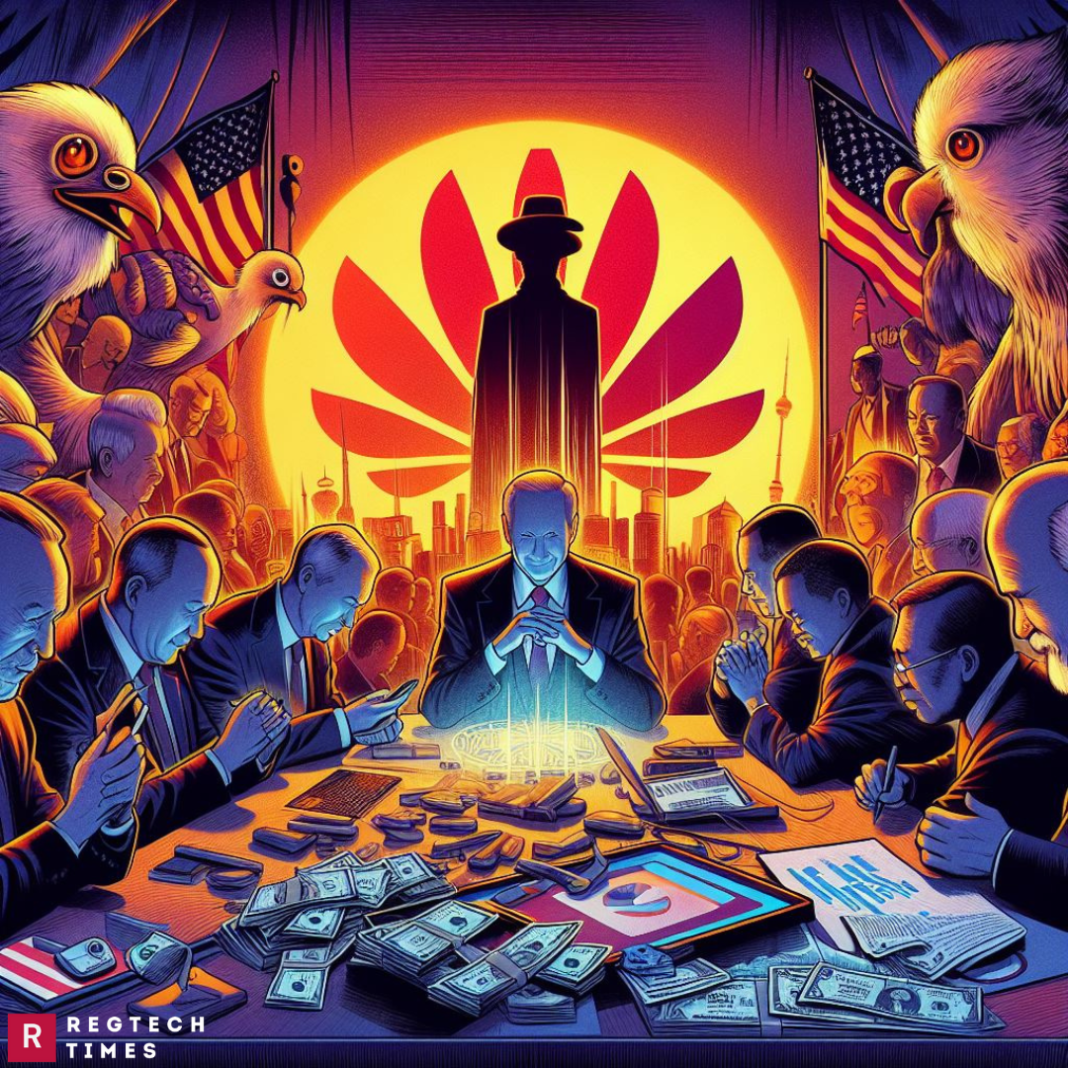Amidst the ongoing rhetoric of imposing sanctions on China, recent revelations by Bloomberg have shed light on a clandestine practice that undermines the effectiveness of such measures. Despite years of sanctions, the Chinese tech behemoth Huawei has been quietly financing several research projects within the United States. This covert funding, channelled through a Washington-based research foundation known as Optica, has been supporting cutting-edge research at prestigious American universities, including Harvard.
Covert Funding Unveiled:
The investigation by Bloomberg has uncovered a startling revelation: Huawei stands as the sole financial supporter of a research competition overseen by Optica, a Washington-based research foundation. This competition, operating since 2022 and awarding millions of dollars, has flown under the radar, funded by Huawei’s covert contributions. This revelation has ignited concerns regarding the far-reaching implications of such research advancements for China’s defence contracting and commercial interests.
Huawei’s covert funding raises fundamental questions about the extent of its influence on research agendas within the United States and the potential exploitation of American intellectual property for strategic gains. The clandestine nature of this funding underscores the need for increased transparency and scrutiny in academic research collaborations, particularly those involving entities with ties to countries of strategic concern.
Implications and Concerns:
The covert nature of Huawei’s funding raises significant concerns about the integrity of academic research and its implications for national security. By exerting financial influence over research projects, Huawei may seek to shape technological advancements in ways that benefit its own interests, potentially undermining US competitiveness and security in critical sectors. Furthermore, the lack of transparency surrounding Huawei’s involvement raises questions about the adequacy of existing regulations and oversight mechanisms to prevent undue foreign influence in sensitive research areas.
Legal but Concerning:
While the acceptance of anonymous funding from Huawei for research purposes may technically comply with existing legal frameworks, its implications have triggered concerns within US government national security circles. The absence of stringent regulations governing foreign funding in academic research creates a loophole that could be exploited by entities with ulterior motives. This raises significant challenges in safeguarding national interests and intellectual property rights.
The lack of transparency surrounding Huawei’s involvement highlights the need for comprehensive oversight mechanisms to mitigate the risks associated with foreign influence in sensitive research areas. Without robust regulations, there remains a pressing need to address vulnerabilities in the research ecosystem to prevent potential exploitation and ensure the integrity of academic pursuits aligns with national security priorities.
Defensive Stance:
A Huawei representative defended the partnership with Optica, saying that the competition was started to promote international research and scholarly communication. However, concerns persist about the implications of such covert funding on US national security, particularly given Huawei’s history of facing restrictions in the country. Huawei’s assertion of benign intentions contrasts with the potential risks associated with its covert funding, highlighting the need for greater transparency and scrutiny in research collaborations involving foreign entities.
Reigniting Concerns:
Huawei is still doing well in Europe even with difficulties in the US market. Its secret research financing in the US, however, has sparked new worries about its connections to the Chinese government and possible effects on US national security. The revelations underscore the need for enhanced vigilance and regulatory measures to address vulnerabilities in the research ecosystem and mitigate risks associated with foreign influence in academia.
Conclusion:
Huawei’s covert funding of US research through Optica raises troubling questions about the integrity of academic research and its implications for national security. The lack of transparency surrounding Huawei’s involvement underscores the need for stronger regulations and oversight mechanisms to safeguard against undue foreign influence in sensitive research areas. As the United States grapples with the challenges posed by technological competition and strategic rivalry, addressing the vulnerabilities exposed by Huawei’s covert funding is imperative to protect national interests and preserve the integrity of academic research.



